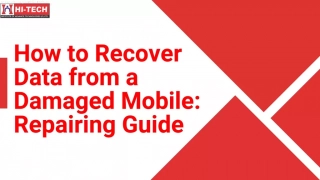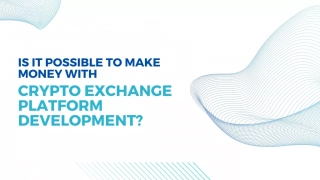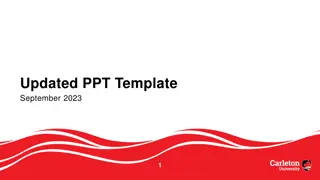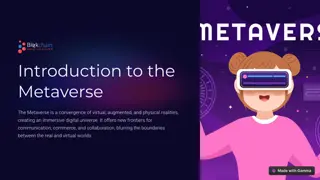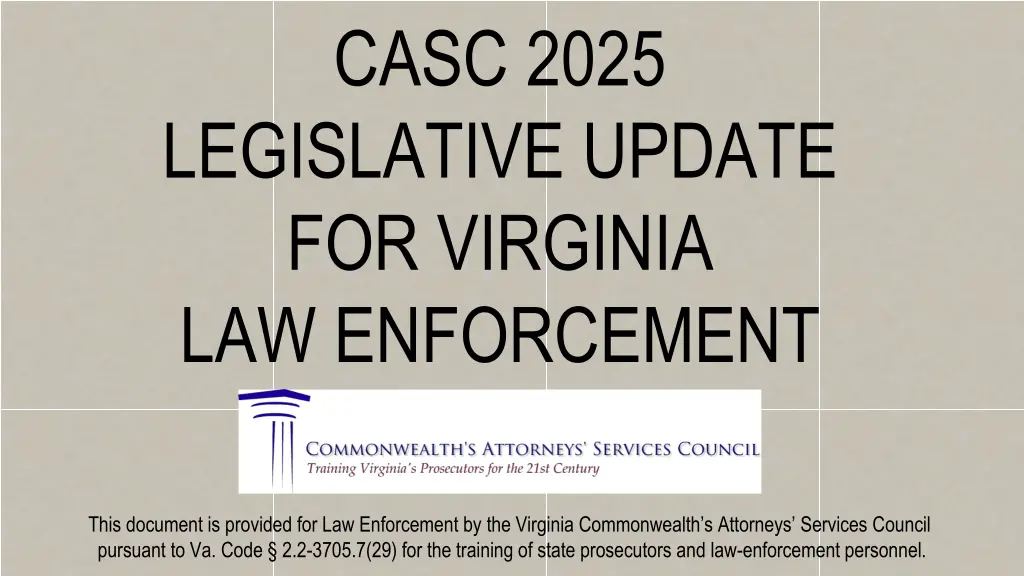
Virginia 2025 Legislative Update Impacting Law Enforcement
Explore the Virginia Commonwealth's attorneys' latest legislative update for law enforcement, covering topics like criminal investigations, procedures, and regulatory requirements. Dive into specific bills, such as Ch. 175 concerning juvenile fingerprints, and understand the implications for law enforcement personnel.
Download Presentation

Please find below an Image/Link to download the presentation.
The content on the website is provided AS IS for your information and personal use only. It may not be sold, licensed, or shared on other websites without obtaining consent from the author. If you encounter any issues during the download, it is possible that the publisher has removed the file from their server.
You are allowed to download the files provided on this website for personal or commercial use, subject to the condition that they are used lawfully. All files are the property of their respective owners.
The content on the website is provided AS IS for your information and personal use only. It may not be sold, licensed, or shared on other websites without obtaining consent from the author.
E N D
Presentation Transcript
CASC 2025 LEGISLATIVE UPDATE FOR VIRGINIA LAW ENFORCEMENT This document is provided for Law Enforcement by the Virginia Commonwealth s Attorneys Services Council pursuant to Va. Code 2.2-3705.7(29) for the training of state prosecutors and law-enforcement personnel.
Materials This PowerPoint attempts to identify the legislation from the 2025 General Assembly Regular Session that has the greatest impact on law enforcement and public safety. Consult the 2025 Legislative Update Master List outline for full listing of bills of interest. This presentation will NOT cover every bill.
Materials You must rely only upon the final language of the bill after passage. Slides summarize each bill, but you should read the actual law before acting. You can find the bill on the LIS website at: http://lis.virginia.gov/lis.htm.
Topics for this Presentation Criminal Investigations Criminal Procedure Sealing New and Amended Crimes and Offenses Including Tobacco and Liquid Nicotine Traffic Offenses Law Enforcement Regulatory & Reporting Requirements ALPRs Law Enforcement Procedural Guarantees and Requirements
Ch. 175: Juvenile Fingerprints Amends 16.1-299 Requires law-enforcement officers to obtain, electronically when possible, fingerprints, palm prints with accompanying distal prints, if available, and photographs of any juvenile taken into custody and charged with a delinquent act. Requires such fingerprints, palm prints, or photographs to be both filed with the Central Criminal Records Exchange and submitted electronically, when possible, to the State Police to be maintained in a confidential and secure area within the system in which the record is maintained that is inaccessible during routine use of such system.
Ch. 175: Juvenile Fingerprints (cond) The bill further requires any electronic record of such fingerprints, palm prints, or photographs to be destroyed as soon as possible after the State Police have been notified that a petition or warrant has not been filed against the juvenile. The bill has a delayed effective date of July 1, 2026.
Ch. 286: Electronic communication service or remote computing service; obtaining records without a warrant. Amends 19.2-70.3(E), which governs when an investigative or law- enforcement officer may obtain real-time location data or subscriber data without a warrant. Adds a new exception for threats against a school, subsection (6). Adds new procedural restrictions that may make all six exceptions more difficult to use, or potentially impossible to use. Creates new subcategory of data, subscriber data.
New Subcategory of Subscriber Information "Subscriber data" means the name, address, telephone number, and any other information identifying a subscriber of a communications services provider. "Subscriber data" does not include data or personally identifiable information protected by federal or state law, including viewing history, billing details, Internet usage patterns or data, and any other data protected by federal or state law.
Previous Exceptions 1. User s 911 / EMS call. 2. Consent of the owner or user. 3. Consent of the legal guardian or next of kin of the owner or user, if the owner or user is reasonably believed to be deceased, is reported missing, or is unable to be contacted; 4. To locate a missing/abducted/endangered child; 5. Emergency involving the immediate danger to a person that requires the disclosure, without delay, of real-time location data concerning a specific person and that a warrant cannot be obtained in time to prevent the identified danger
NEW: If the investigative or law-enforcement officer reasonably believes that electronic communication to commit an act of violence upon the property, including the buildings and grounds thereof, of any (a) child day center, as defined in 22.1-289.02, including any preschool program offered by a publicly funded provider; (b) any preschool or nursery school program certified by the Board of Education pursuant to 22.1-289.032; or (c) public, private, or religious elementary or secondary school, as defined in 22.1-1, and (ii) a warrant cannot be obtained in time to prevent the identified danger or identify the source of the threat. (i) an individual or group of individuals has made a credible threat via
Reporting Requirement No later than three business days after seeking disclosure of real-time location data or subscriber data pursuant to this subsection, the investigative or law-enforcement officer seeking the information shall file with the appropriate court a written statement setting forth the facts giving rise to the emergency and the facts as to why the person whose real-time location data or subscriber data was sought is believed to be important in addressing the emergency. Previously this applied only to exception #5. To which one of the 6 exceptions does this reporting rule apply now? Not clear.
New Statutory Exclusionary Rule No real-time location data or subscriber data obtained pursuant to this subsection shall be admissible in a criminal proceeding unless a judge finds that probable cause for the issuance of a search warrant existed at the time of the search and such data is otherwise admissible, provided that no such data obtained is presented to establish the necessary probable cause. To which one of the 6 exceptions does this exclusionary rule apply? Not clear.
Ch. 214: Money Transmitters; Deregulation of Cryptocurrency Transmission Replaces existing state law regulating money transmitters with comprehensive provisions aimed at standardizing the regulation of money transmitters across the 50 states. The bill includes provisions for the licensure of money transmitters, supervision and implementation by the State Corporation Commission, acquisition of control of a licensee, mandatory disclosures, reporting and records requirements, authorized delegates, mandatory disclosures, prudential standards, and enforcement. The bill has a delayed effective date of July 1, 2026.
Ch. 345: Search Warrants for Out-of-State Data Amends 8.01-301, 19.2-53, and 19.2-56. As of July 1, 19.2-53 will provide clear authority for magistrates and judges to to issue a search warrant for electronic records to an out-of- state company. As of July 1, 19.2-56 will have a clear process for obtaining, executing, serving, and returning a search warrant for electronic records to an out-of- state company. Law Enforcement will STILL need to follow existing law ( 19.2-70.3, etc.) when obtaining search warrants for Electronic Communications Services (phones, Internet, app providers, social media, etc.)
Ch. 345: Changes to 19.2-53. 4. Any object, thing, or person, including without limitation, (i) documents, (ii) books, (iii) papers, (iv) records, or (v) body fluids, or NEW: (vi) electronic records stored within or outside the Commonwealth of a commercial enterprise, whether a domestic corporation or a foreign corporation, that is transacting or has transacted any business in the Commonwealth, constituting evidence of the commission of crime;
Ch. 345: Changes to 19.2-56(A): #1 If a search warrant is issued for electronic records of a foreign corporation, as described in 19.2-53, such affidavit shall state that the complainant believes such records are actually or constructively possessed by such foreign corporation. In order to comply with the requirements of 19.2-54, any search of the records of a foreign corporation, as described in 19.2-53, shall be deemed to have been made in the same place where the search warrant was issued.
Ch. 345: Changes to 19.2-56(A): #2 Any search warrant for electronic records or other information stored outside of the Commonwealth by a commercial enterprise, whether a domestic corporation or a foreign corporation, that is transacting or has transacted any business in the Commonwealth, to be executed upon such commercial enterprise may be executed within or outside the Commonwealth by hand, United States mail, commercial delivery service, facsimile, or other electronic means upon the commercial enterprise.
Ch. 345: Changes to 19.2-56(A): #3 Notwithstanding the provisions of 19.2-57, the officer executing a warrant pursuant to this paragraph shall endorse the date of execution thereon and shall file the warrant, with the inventory attached (or a notation that no property was seized) and the accompanying affidavit, unless such affidavit was made by voice or videotape recording, within three days after the materials ordered to be produced are received by the officer from the commercial enterprise.
Ch. 345: Changes to 19.2-56(A): #4 The return shall be made in the circuit court clerk's office for the jurisdiction wherein the warrant was (I) executed, if executed within the Commonwealth, and a copy of the return shall also be delivered to the clerk of the circuit court of the county or city where the warrant was issued or (II) issued, if executed outside the Commonwealth. Saturdays, Sundays, or any federal or state legal holiday shall not be used in computing the three-day filing period.
Ch. 400: Law Enforcement Drones Amends 19.2-60.1 to allow a law-enforcement officer or an employee of a law- enforcement agency to deploy an unmanned aircraft system without a warrant : following an accident where a report is required pursuant to relevant law to survey the scene of such accident for the purpose of crash reconstruction and record the scene by photographic or video images or to a) aerially survey a primary residence of the subject of the arrest warrant to formulate a plan to execute an existing arrest warrant or capias for a felony offense or b) locate a person sought for arrest when such person has fled from a law- enforcement officer and a law-enforcement officer remains in hot pursuit of such person. i. ii.
Ch. 400: Cond Current law allows a law-enforcement officer to operate an unmanned aircraft system under such conditions, but not an employee. The bill also permits a law-enforcement officer to deploy an unmanned aircraft system without a warrant where such officer is investigating unmanned aircraft systems surrounding or over property of the federal or state government, public critical infrastructure, or nongovernment- operated prison or jail facilities.
Ch. 669: Juvenile Interrogations Amends 16.1-247.1 Prohibits law-enforcement officers from knowingly and intentionally making false statements about any material fact, including by use of inauthentic replica documents, prior to or during a custodial interrogation of a child to secure the cooperation, confession, or conviction of such child.
Ch. 669: Cond The bill defines "inauthentic replica documents" as any documents, including computer-generated documents, created by any means, including artificial intelligence, by a law-enforcement officer or his agent that contain a false statement, signature, seal, letterhead, or contact information or materially misrepresent any fact. The bill provides that if a law-enforcement officer knowingly violates such prohibition, any statements made by such child shall be inadmissible in any delinquency proceeding or criminal proceeding against such child. i. ii.
Parental Notification: Virginia Code 16.1-247.1 Existing law prior to 2025 already provides that: Prior to any custodial interrogation of a child by a law-enforcement officer who has arrested a child, the child's parent, guardian, or legal custodian shall be notified of his arrest and the child shall have contact with his parent, guardian, or legal custodian. The notification and contact required by this subsection may be in person, electronically, by telephone, or by video conference.
Exceptions Under Existing Law 1. Child's parent, guardian, or legal custodian is a codefendant in the alleged offense; 2. Child's parent, guardian, or legal custodian has been arrested for, has been charged with, or is being investigated for a crime against the child; 3. If, after every reasonable effort has been made to comply with subsection A, the child's parent, guardian, or legal custodian cannot be located or refuses contact with the child; or 4. If the law-enforcement officer conducting the custodial interrogation reasonably believes the information sought is necessary to protect life, limb, or property from an imminent danger and the law-enforcement officer's questions are limited to those that are reasonably necessary to obtain such information.
16.1-247.1 New Language from 2024 C. Except as provided in subsection B, if a law-enforcement officer knowingly violates the provisions of subsection A, any statements made by such child shall be inadmissible in any delinquency proceeding or criminal proceeding against such child, unless the attorney for the Commonwealth proves by a preponderance of the evidence that the statement was made knowingly, intelligently, and voluntarily. This process now applies to the false statements/false documents rule that has become law in 2025.
Ch. 160: Seizure of Property Amends 19.2-386.5 and adds 19.2-386.36 Bill permits the seizure of property used in connection with or derived from financial exploitation of vulnerable adults. Establishes a procedure for seizure of property used in connection with or derived from financial exploitation of vulnerable adults. The bill permits a guardian, adult proactive agent, or representative of the vulnerable adult to enforce such an action for good cause shown.
Ch. 160: Procedure At any time after the filing of an answer or upon default, on motion of the attorney for the Commonwealth or a vulnerable adult, the court may order the return of property to the vulnerable adult upon a showing that the property is the subject of a violation of 18.2-178.1 or traceable to such a violation and is properly exempt from forfeiture pursuant to 19.2-386.8.
Ch. 160: Seizure Procedure an action against any property subject to seizure under the provisions of this section may be commenced by the filing of an information in the clerk's office of the circuit court by the guardian, adult protective agent, or representative of the vulnerable adult, who may for good cause shown, upon motion to the court in which the information is filed, act and stand in the place of the attorney for the Commonwealth for the enforcement of such action. A hearing on a motion by a vulnerable adult pursuant to this section shall be scheduled on an expedited basis and given priority over other civil matters before the court. In addition to existing procedures for service of process, such service may be satisfied by certified mail, return receipt requested.
Ch. 161: Permanent Protective Orders Amends 16.1-279.1 Provides that if the court finds, based upon evidence presented, that the respondent has been subject to a previous permanent protective order or a permanent protective order in cases of family abuse issued within 10 years, the court may issue a permanent protective order in a case of family abuse for a specified period of time up to a maximum of four years.
Ch. 161: Cond The bill further provides that such protective order may be extended for a period of not longer than two years, regardless of whether such order was initially issued for a period of time up to a maximum of two years or four years. Current law allows such protective orders to be issued for a specified period of time up to a maximum of two years and extended for a period of time not longer than two years.
Ch. 208 / 217: Military Protective Orders Amends 16.1-253.1, 16.1-253.2, 18.2-60.4, and 19.2-152.9 Permits a court to issue a preliminary protective order upon evidence of a Military Protective Order issued by a commanding officer in the Armed Forces of the United States, the Virginia National Guard, or the National Guard of any other state in favor of the petitioner or the petitioner's family or household members.
Ch. 208 / 217: Cond The bill provides that a Military Protective Order issued between the parties shall only be admissible or considered as evidence in accordance with the Code of Virginia, the Rules of Evidence of the Supreme Court of Virginia, or other relevant Virginia case law. The bill requires a law-enforcement agency, upon a defendant's violation of a protective order, if such Military Protective Order was issued against the same defendant as a protective order in a Virginia court and registered with the National Crime Information Center (NCIC), to inform the military law-enforcement officer or agency that issued and entered the Military Protective Order into NCIC of such violation.
Ch. 550/560: Foreign Protective Orders Amends 16.1-253.2. Clarifies that the same criminal penalty applies for any person who violates the provisions of a foreign protective order in a case of family abuse that is accorded full faith and credit and is enforceable in the Commonwealth as if it were an order of the Commonwealth. This bill is a recommendation of the Judicial Council of Virginia.
Ch. 213: Compensation for Wrongful Incarceration Amends 8.01-195.11 and 8.01-195.13. Provides that the instrumentality, political subdivision, or employee responsible for employing the individual who committed an intentional act shall compensate the wrongfully incarcerated individual. Under current law, additional compensation for intentional acts shall not become effective unless and until the wrongfully incarcerated person enters into an agreement with the instrumentality or political subdivision that committed or employed the individual committing the intentional acts to provide such compensation.
Ch. 213: Cond In the event that the instrumentality or subdivision fails to compensate the individual, the bill authorizes the Governor to issue an order to the Comptroller to withhold all payments of appropriated funds to the instrumentality or political subdivision until such compensation has been paid. The bill also provides that any compensation an individual receives for wrongful registration with the Sex Offender and Crimes Against Minors Registry only applies to the years that the individual was registered after release from incarceration.
Ch. 225: Crime Victims Compensation Amends 19.2-368.5, 19.2-368.10, 19.2-368.11:1, and 19.2-368.17. Extends, for the purpose of compensating victims of crime, the time for filing a claim by the claimant to not later than three years after the occurrence of the crime upon which such claim is based, or not later than three years after the death of the victim. Under current law, such time frame is not later than one year after either instance. The bill removes the prohibition on the Virginia Workers' Compensation Commission (the Commission) making an award where the police records show that a crime was reported more than 120 hours after the occurrence of the crime.
Ch. 225: Cond Also, the bill requires the Commission, in determining if a report was promptly reported to the proper authorities, to consider any police records; ii. the victim's physical, emotional, mental, and family situation; and iii. the existence of a permanent protective order, issued pursuant to relevant law, for the victim or other persons eligible for awards from the person responsible for the qualifying crime. Note that the prompt reporting requirement does not apply to sexual abuse. i.
Ch. 225: Crime Victims Compensation The bill also removes the ability of the Commission to deny, reduce, or withdraw any award upon finding that any claimant or award recipient has not fully cooperated with all law-enforcement agencies, unless the law-enforcement agency certifies that the claimant or award recipient was willing but unable to cooperate due to a good faith belief that such cooperation would have endangered such claimant or award recipient and such claimant or award recipient was not provided with any victim or witness protection services when such protection services were requested by a law-enforcement agency.
Ch. 320: Ignition Interlock Amends 18.2-271.1. Permits a first-time or second-time offender charged with driving while intoxicated to obtain an ignition interlock pre-conviction. The bill allows the installation period of time accrued by such offender prior to trial for the pending charge to count toward any ignition interlock or restricted license period of time ordered by the court or restricted license, suspension, or revocation issued by the Department of Motor Vehicles pursuant to relevant law. Current law prohibits the installation of an ignition interlock system until a court issues a restricted license. i. ii.
Ch. 433: Sex Offender Registration Amends 9.1-904. Requires any person who is required to register with the Sex Offender and Crimes Against Minors Registry and who is convicted of a Tier I or Tier II offense to register yearly. The bill also requires any person convicted of providing false information or failing to provide registration information where such person was included on the Registry for a Tier I or Tier II offense to register twice a year.
Ch. 454: Restraints on Juveniles New Section 16.1-276.4. Prohibits the use of instruments of restraint, as defined in the bill, on a juvenile appearing before the juvenile and domestic relations district court unless, upon motion of the attorney for the Commonwealth or on the court's own motion sua sponte, the court makes a finding that (i) the use of such restraints is necessary a. to prevent physical harm to such juvenile or another person, b. because such juvenile has a history of disruptive courtroom behavior that has placed others in potentially harmful situations or presents a substantial threat of serious harm to himself or others as evidenced by recent behavior, or c. because such juvenile presents a substantial risk of flight from the courtroom and (ii) there are no less restrictive alternatives to such restraints that will prevent flight of or harm to such juvenile or another person, including court personnel or law-enforcement officers. i. ii.
Ch. 454: Restraints on Juveniles As used in this section, "instruments of restraint" includes handcuffs, chains, irons, straightjackets, and electronic restraint devices. "Instruments of restraint" does not include an electronic device used for home electronic monitoring.
Ch. 454: Cond The bill provides that the juvenile shall be entitled to an attorney prior to a hearing on the use of instruments of restraint. The bill also requires the court to provide the juvenile's attorney an opportunity to be heard before the court orders the use of instruments of restraint, and the juvenile's attorney may waive the juvenile's appearance at such hearing. Lastly, the bill requires the court, if such restraints are ordered, to communicate to the parties the basis of the decision either orally or in writing.
Ch. 543 / 556: Dissemination of Criminal Records Amends 19.2-389. Requires an attorney for the Commonwealth to provide a physical or electronic copy of a person's criminal history record information, including criminal history record information maintained in the National Crime Information Center and the Interstate Identification Index System that is in his possession, pursuant to the rules of court for obtaining discovery or for review by the court. The bill also provides that no criminal history record information provided shall be disseminated further. Current law provides that nothing shall preclude the dissemination of a person's criminal history record information pursuant to such rules of court but does not require the attorney for the Commonwealth to provide the copy nor identify specific types of information.
Chapter 717 Bail and Pregnancy Adds to the list of items that must be considered in determining bail under 19.2-120 the following: any evidence the person provided indicating that such person a) is currently pregnant, b) has recently given birth, or c) is currently nursing a child.
Ch. 634 / 671: Sealing of Convictions Permits certain convictions to be Sealed beginning July 1, 2026 Sealing prohibits public access to records relating to an arrest, charge, or conviction, including any ancillary matter ordered to be sealed. Allows petitions to seal convictions for: Misdemeanor offenses ii. Class 5 or 6 felonies, or iii. Violations of 18.2-95 or any other felony offense in which the defendant is deemed guilty of larceny and punished as provided in 18.2-95, i.




